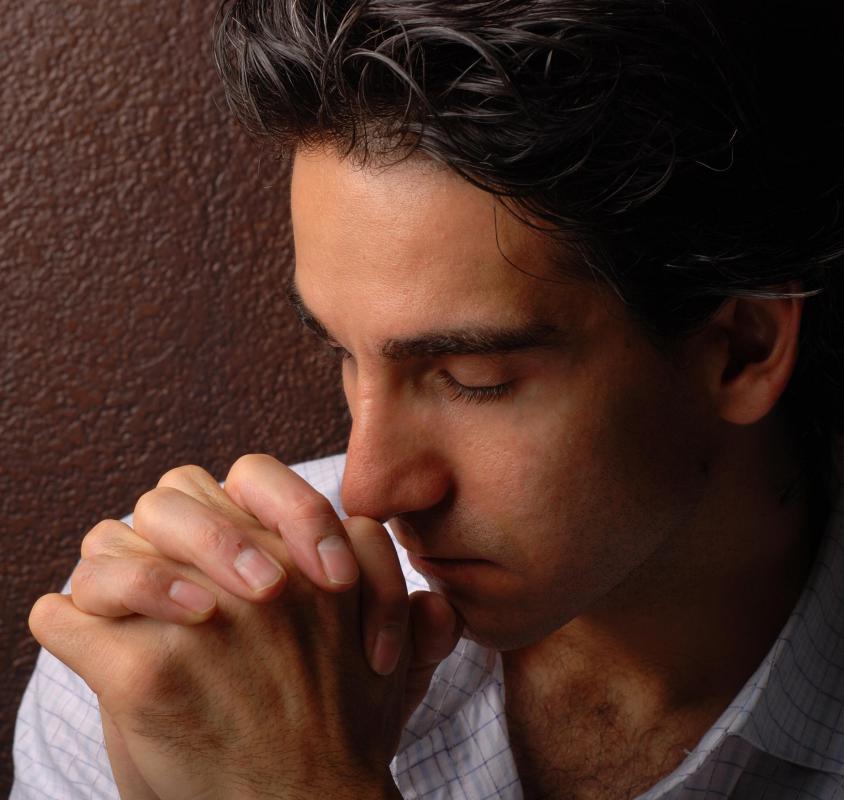At WiseGEEK, we're committed to delivering accurate, trustworthy information. Our expert-authored content is rigorously fact-checked and sourced from credible authorities. Discover how we uphold the highest standards in providing you with reliable knowledge.
What are the Different Types of Drug Rehab?
The different types of drug rehab depend upon the degree of dependence, the patient's social situation, and the kind of drug to which they are addicted. Some rehabilitation treatments have medical components, to ease the symptoms of withdrawal, intensive counseling, and methods that address underlying causes of addiction. In general, one can differentiate between drug rehab with in-patient, or residential, requirements versus out-patient treatment.
Different types of drug rehab rely on disparate philosophies on the nature of addiction, available resources, and the degree of cooperation from the patient. The medical, psychological, and law enforcement communities disagree on which programs are most successful, therefore there are a variety of paths towards recovery. While varied, these paths go through similar stages, beginning with detoxification, going through therapy, and ending in integration into employment and housing.

Often, every type of drug rehab starts in a medical setting so health professionals can oversee the chemical detoxification by which the drug chemically leaves the system, and the person is no longer physically dependent upon the drug. Under supervision, the patient's side effects can be tempered by medication, as well as proper nutrition and sleep. This interventionary stage is rarely enough to allow a patient to fully recover from a drug addiction, for there is no psychological element.

A residential, in-patient treatment center provides full-time supervision in a tightly controlled environment. Living in a facility associated with a hospital, psychiatric center, or community outreach center, provides underlying support with meal plans and housing. This type of drug rehab usually involves a short, interventionary program, often as little as 30 days, with the expectation that the addict will continue treatment in an out-patient setting.

Some other intensive types of drug rehab rely on voluntarily attended out-patient treatment, which means patients live and work on their own. They attend meetings, counseling sessions, or classes designed to equip the addict with new coping mechanisms so that when they encounter stress, they no longer turn to drugs. This includes so-called 12-step programs, such as Narcotics Anonymous, that have a strong spiritual basis. Drug rehab of this sort could be official, with a trained counselor present during group therapy, or casual, in a community setting.

Finally, there are a few types of drug rehab that attempt to address the underlying causes of addiction and repeated relapse, such as estrangement from family and friends, no support system, low employment skills, mental illness, and living in a community united solely by drug use. This holistic approach to drug rehab includes halfway houses and community centers, where an addict acquires job skills, practical advice, and has enough time to completely remove themselves from old acquaintances. Such a facility often allows patients to stay for an extended period of time, such as six to twelve months, until they are confident they can function independently without returning to their addiction.
AS FEATURED ON:
AS FEATURED ON:














Discussion Comments
Can you tell me the name of the drug rehab facility in Japan that your Uncle stayed in? Or any other rehab places in Tokyo that you know of. This would be very helpful!
Here on this site I got lot of information related to drug rehabs. Drug rehabilitation offers long term facilities that are very helpful for people. There are various types of drug addiction treatment centers.
Can someone explain to me what the difference is between a drug detox and rehab facility?
There are other types of long-term rehab facilities that are not mentioned in this article. My uncle lives in Japan, and he lived in a long-term rehab facility for over five years. He is a global marketing manager in Japan and he resides in a rehab community with other professionals suffering from addiction. He has actually been quite successful at this facility, and he has been clean longer than any other time in his life. He is able to come and go as he pleases, but he is required to meet with counselors and other community members on a regular basis.
It is a structured environment with lots of support. Who comes and goes is monitored, and there are one-on-one appointments that complement the group experience. It has been a great facility for him mostly because professionals who hold similar positions and share similar addictions surround him.
Thank you for sharing this information. you have described complete steps involved in a drug rehab program.
Post your comments